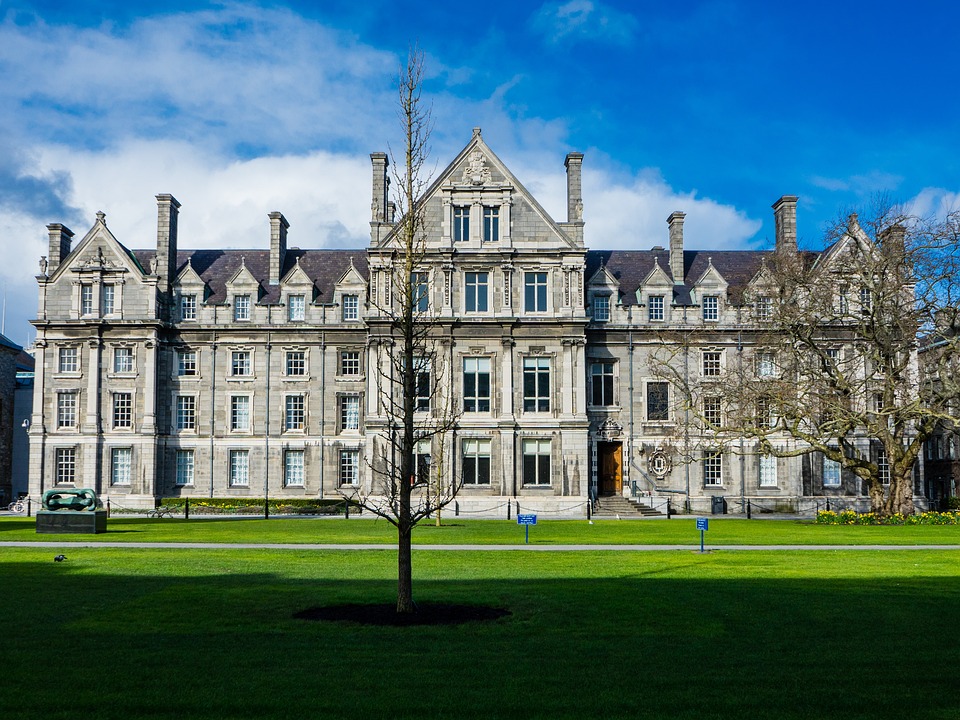USA Scholarships for Nigerian & African Students – 2025 Updates: Your Gateway to American Education
For ambitious Nigerian and African students dreaming of pursuing higher education in the United States, the possibility can often seem daunting due to the high tuition fees and living expenses. However, a plethora of scholarship opportunities exist to help bridge this financial gap and make your academic aspirations a reality. This comprehensive guide offers updated information for 2025, equipping you with the knowledge and resources to navigate the scholarship landscape and maximize your chances of securing funding for your studies in the USA.
Why Study in the USA? A Compelling Choice for African Students
The United States remains a highly sought-after destination for international students, particularly those from Africa, for several compelling reasons:
- World-Class Education: American universities consistently rank among the best globally, offering cutting-edge research facilities, renowned faculty, and a diverse range of academic programs.
- Career Opportunities: A US degree is highly valued by employers worldwide, opening doors to promising career prospects and international job opportunities.
- Cultural Immersion: Studying in the US provides a unique opportunity to experience American culture, connect with diverse individuals, and broaden your global perspective.
- Personal Development: The challenging academic environment and diverse extracurricular activities foster personal growth, critical thinking, and leadership skills.
- Networking Opportunities: US universities provide access to a vast network of alumni, faculty, and industry professionals, which can be invaluable for career advancement.
Navigating the US Scholarship Landscape: Understanding Your Options
Before delving into specific scholarships, it’s crucial to understand the different types of funding available:
- Merit-Based Scholarships: Awarded based on academic excellence, standardized test scores (SAT/ACT, GRE/GMAT), extracurricular achievements, and leadership qualities.
- Need-Based Scholarships: Awarded based on the applicant’s demonstrated financial need, taking into account their family income and assets.
- Program-Specific Scholarships: Offered by individual departments or programs within a university to attract top talent in specific fields of study.
- Government-Sponsored Scholarships: Funded by the US government or the student’s home country government to promote international education.
- Privately Funded Scholarships: Offered by private foundations, organizations, and corporations to support deserving students.
Key Scholarships for Nigerian & African Students in 2025
While the specific deadlines and eligibility criteria may vary slightly each year, here are some prominent scholarship programs that African students should explore for the 2025 academic year:
- Fulbright Foreign Student Program: This prestigious US government-sponsored program offers scholarships for graduate students, young professionals, and artists from various countries, including Nigeria and other African nations. It covers tuition, living expenses, airfare, and health insurance. Focus is placed on applicants with strong academic records and a commitment to promoting intercultural understanding.
- Hubert H. Humphrey Fellowship Program: A non-degree professional development program for mid-career professionals from designated countries, including many in Africa. Fellows participate in academic coursework and professional activities related to their field. The program covers tuition fees, living expenses, and international travel.
- The Mastercard Foundation Scholars Program: This ambitious initiative aims to empower young African leaders by providing access to quality education and leadership development opportunities. Partnering with select universities in the US, the program offers comprehensive scholarships covering tuition, accommodation, living expenses, and mentorship support.
- African Graduate Fellowships (AGF): Several universities and organizations offer specific graduate fellowships targeted towards African students. These can range from partial tuition waivers to fully funded scholarships, depending on the institution and the field of study. Researching specific university websites is crucial to identify these opportunities.
- Margaret McNamara Education Grants (MMEG): Provides grants to women from developing countries pursuing graduate studies in the US. The grants are primarily intended to assist women who are committed to working in fields that benefit women and children in developing countries.
- Schwarzman Scholars Program: A fully funded master’s program at Tsinghua University in Beijing, China, this program is open to applicants from around the world, including Africa. While not strictly a US scholarship, it provides an opportunity to study in a global context and potentially network with individuals who can facilitate future opportunities in the US.
- University-Specific Scholarships: Many US universities offer their own merit-based and need-based scholarships specifically for international students. Thoroughly exploring the financial aid websites of your target universities is essential. Look for scholarships tailored to your specific field of study or region of origin.
- The World Bank Graduate Scholarship Program (WBGSP): Open to citizens of certain developing countries with relevant professional experience and a history of supporting their countries’ development efforts. This program supports graduate studies in development-related fields.
Preparing a Winning Scholarship Application: Tips for Success
Securing a scholarship is a competitive process, requiring meticulous preparation and a compelling application. Here are some key tips to increase your chances of success:
- Start Early: Begin researching scholarships well in advance of the application deadlines. This allows ample time to gather required documents, write compelling essays, and seek recommendations.
- Meet the Eligibility Criteria: Carefully review the eligibility requirements for each scholarship before applying. Ensure you meet all the criteria regarding academic qualifications, citizenship, and financial need.
- Craft a Strong Personal Statement: Your personal statement is your opportunity to showcase your personality, achievements, and aspirations. Tell a compelling story that highlights your unique qualities and demonstrates your commitment to your chosen field.
- Obtain Strong Letters of Recommendation: Request letters of recommendation from professors, mentors, or employers who can attest to your academic abilities, leadership potential, and personal character. Provide them with sufficient information about your goals and the specific scholarship requirements.
- Demonstrate Financial Need (If Applicable): Accurately and honestly present your financial situation, providing all required documentation to support your claims.
- Proofread Carefully: Ensure your application is free of grammatical errors and typos. Have someone else review your application before submitting it.
- Tailor Your Application: Customize your application to each scholarship program, highlighting the aspects of your profile that align with the program’s specific goals and values.
- Network and Seek Guidance: Reach out to current or former international students who have studied in the US. Seek guidance from educational advisors or mentors who can provide valuable insights and advice.
Beyond Scholarships: Exploring Additional Funding Options
While scholarships are a primary source of funding, consider exploring other options to finance your education:
- Student Loans: Explore student loan options from your home country or international lending institutions.
- Work-Study Programs: Some universities offer work-study programs that allow students to earn money while studying.
- Part-Time Jobs: Depending on visa regulations, you may be able to work part-time on campus or off-campus.
- Family Support: Seek financial support from family members or relatives.
Conclusion: Your Dream is Within Reach
Pursuing higher education in the United States is a transformative experience that can shape your future. By diligently researching scholarship opportunities, preparing a compelling application, and exploring alternative funding options, you can overcome the financial barriers and realize your academic aspirations. Remember to start early, be persistent, and never give up on your dream of studying in the USA. With dedication and strategic planning, you can unlock the doors to a world-class education and a brighter future. Good luck!



